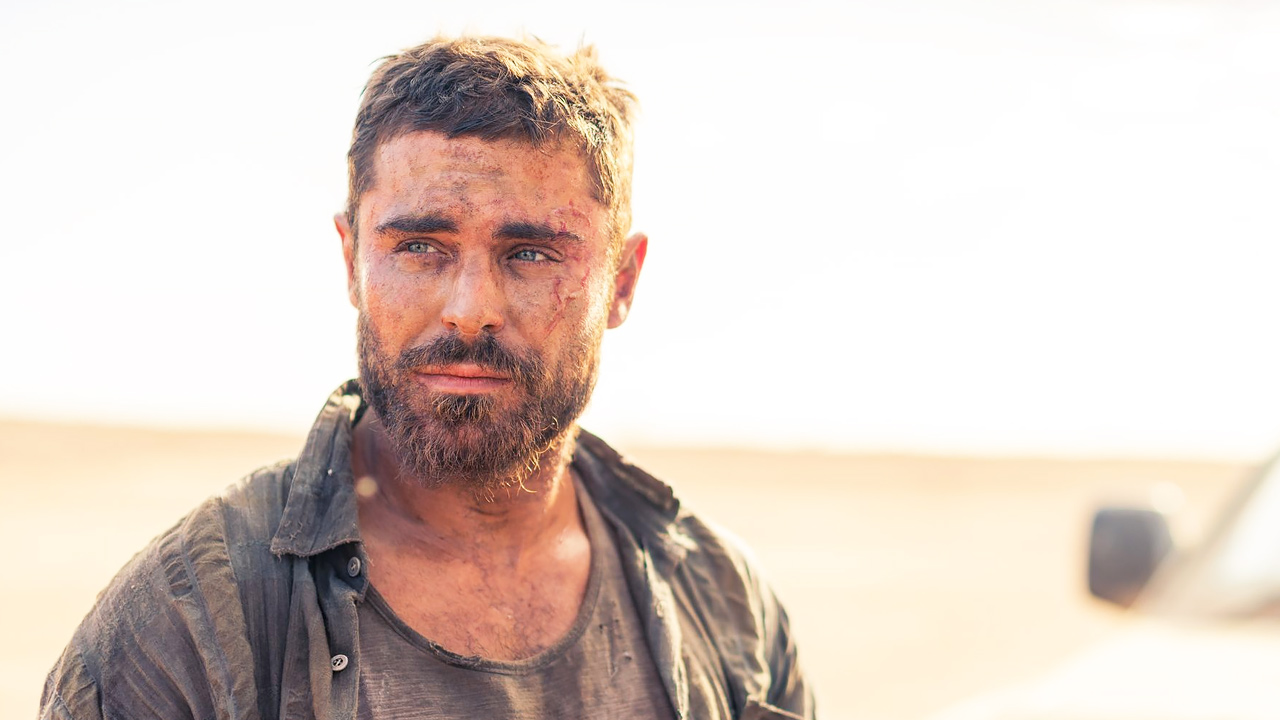Gold is an unyielding genre film led by a solid, sun-frazzled performance from Zac Efron

Zac Efron searches for his edge in this sparsely effective Australian-made thriller about a drifter willing to risk everything for a better life. Here’s Craig Mathieson’s review.
“I can handle it.”
That’s a line repeatedly spoken in Gold by Man One (Zac Efron), a nameless drifter at the edge of a fraying near-future world in this desert thriller from Australian actor and now filmmaker Anthony Hayes. They’re emblematic words for this unyielding drama, equally applicable to the character, the actor playing him, and the director depicting his plight. All three—Man One, Efron, and behind the camera Hayes—are being tested by trying circumstances.
Holding on as everything slips away is a key theme, tinged with bitterness and eventually cruelty. But as a movie Gold hangs together, urgent but also bittersweet. At a certain point, the narrative tells you, you’ve simply gone too far to come back. That can apply equally to Man One or the world he finds himself in: a desert backblocks in “the Eastern Territories”, where accents are mostly American, warning signs are in multiple languages, and snatches of radio news suggest a society steadily breaking down.
“Folks turning on each other,” is the observation of Man Two (Hayes), who has been paid to drive Man One, fresh off hopping a train carriage, to “the Compound”. We never see that sci-fi site—although in terse conversation the pair are divided on how dangerous it is—because an unforeseen stop in the dry, vast realms reveals a massive gold nugget. Life-changing wealth too big to move, but obvious enough to bend expectations. Man One decides to camp out with the deposit, while Man Two does a round trip to fetch an excavator.
The lure of gold has long dangerously warped perceptions in the movies, from Erich von Stroheim’s butchered silent epic Greed through to John Huston’s desperate classic The Treasure of the Sierra Madre. Hayes keeps the top of the gold reef, glinting above the sand, in his elegantly framed shots, and in turn Man One can’t take his eyes off it. Left alone with few supplies, he’s a study of obsession and suffering.
Efron is capable in his abasement, showing us someone already battered by life who believes his hunger for riches can outweigh any pain; the actor’s blockbuster-ready body puckers with sunburn blisters and wilts with dehydration. He’s has always been pliable, moving from teen fame (High School Musical) to romantic drama leading man (The Lucky One) to comedy ensembles (Bad Neighbours). But here Efron seeks to his limits as an actor.

It’s a worthy but not enduring dive as Hayes and co-writer Polly Smyth have crafted a tight, episodic structure: a descent where the risks are physical and then psychological, with Man Two a voice on a dusty satellite phone trying to explain that he’s been held up. As much as the landscape and its inhabitants have been impressively digitally enhanced, the story is stripped down and concise. It doesn’t unduly linger on Man One’s struggle, or allow for unhinged imagery.
“Things start to get real strange,” promises a visitor, appraising Man One’s dire situation. But Gold keeps moving forward, or perhaps downwards, instead of invoking the otherworldly. Running a little over 90 minutes, it’s an unyielding genre film with a harsh kick to it that doesn’t reach too high. Hayes and Efron can handle this solid drama.


















